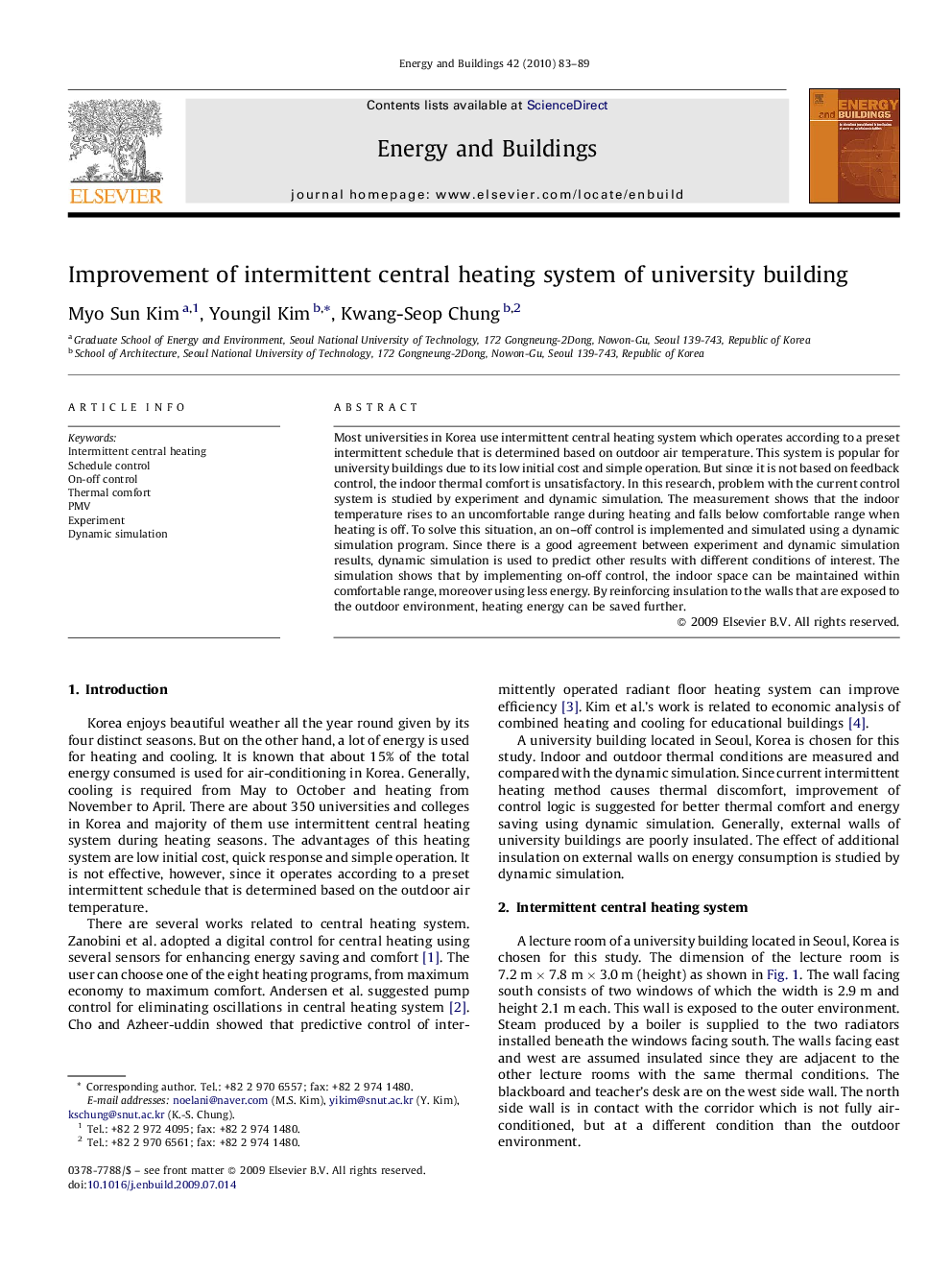| Article ID | Journal | Published Year | Pages | File Type |
|---|---|---|---|---|
| 265238 | Energy and Buildings | 2010 | 7 Pages |
Most universities in Korea use intermittent central heating system which operates according to a preset intermittent schedule that is determined based on outdoor air temperature. This system is popular for university buildings due to its low initial cost and simple operation. But since it is not based on feedback control, the indoor thermal comfort is unsatisfactory. In this research, problem with the current control system is studied by experiment and dynamic simulation. The measurement shows that the indoor temperature rises to an uncomfortable range during heating and falls below comfortable range when heating is off. To solve this situation, an on–off control is implemented and simulated using a dynamic simulation program. Since there is a good agreement between experiment and dynamic simulation results, dynamic simulation is used to predict other results with different conditions of interest. The simulation shows that by implementing on-off control, the indoor space can be maintained within comfortable range, moreover using less energy. By reinforcing insulation to the walls that are exposed to the outdoor environment, heating energy can be saved further.
